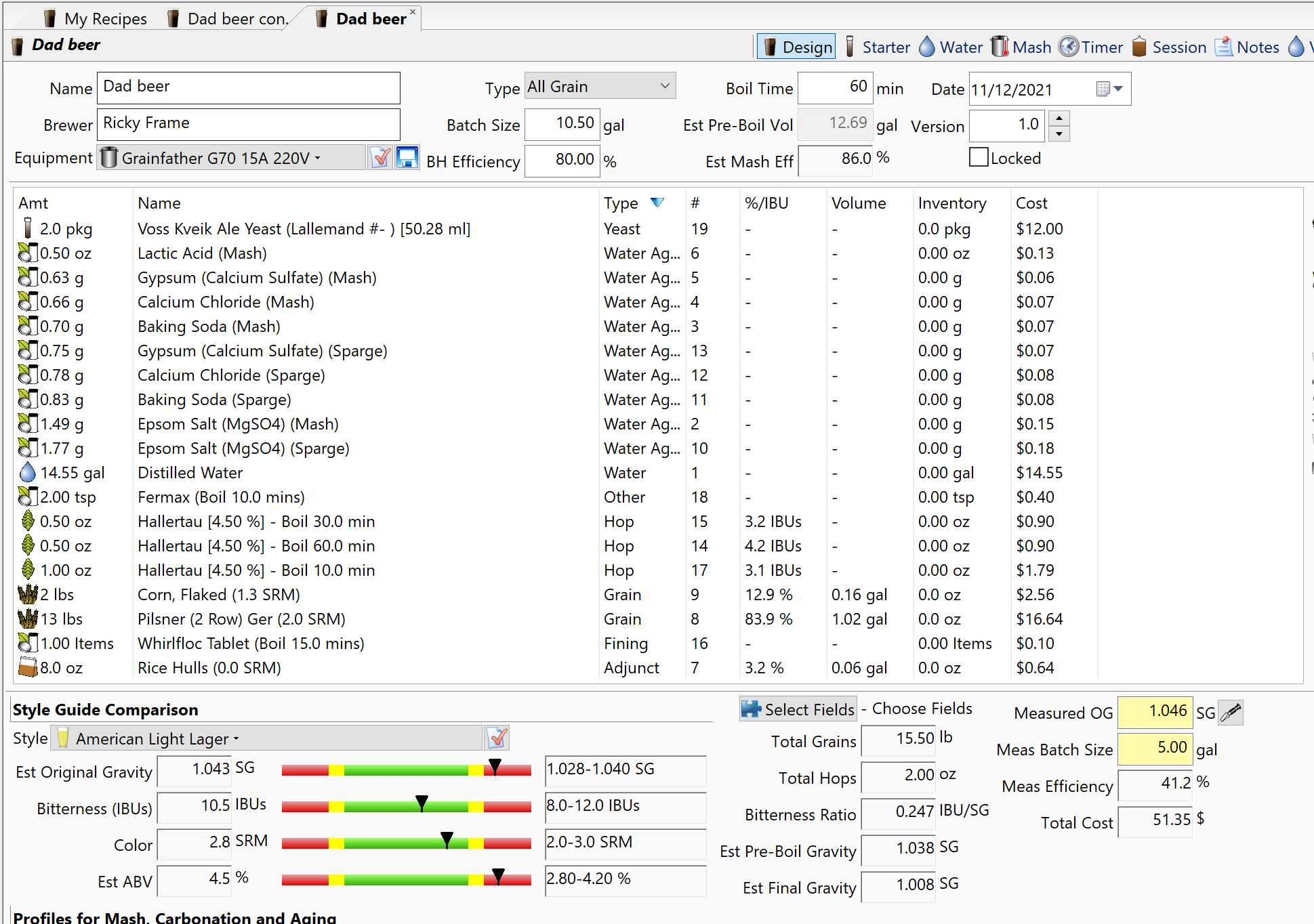RickyBeers
Well-Known Member
- Joined
- Jun 10, 2021
- Messages
- 136
- Reaction score
- 42
I'm brewing a high gravity beer (5.5 gallon after boil) that I will be diluting with distilled water to get 10.5 gallons to fill two cornys.
I use distilled water for everything and I used Brew smith to build the water profile for an american lager as if I was using a large grainfather system (I use the small 110v version) making a 10.5 gallon batch.

So... I want to make sure this converts to my high gravity process.
I attached my grainfather recipe to show you how I will be making it. Can someone take a look at the salt additions? BTW, "each" as the unit means grams... They didn't have grams as an option *SMH*
Am I good to add all the salts that I would be adding to the 5 gallons of distilled that I dilute with straight to the mash? Or do I need to break those up between the two? The sparge water expectation is different in the recipes as well.
Let me know thoughts on all this. Part of me just wants to say F-it and use the 5.2 stabilizer but I'm trying to get into water profiles. I enjoy doing high gravity brewing so I can get two kegs, I know that is the obvious challenge here.
I use distilled water for everything and I used Brew smith to build the water profile for an american lager as if I was using a large grainfather system (I use the small 110v version) making a 10.5 gallon batch.

So... I want to make sure this converts to my high gravity process.
I attached my grainfather recipe to show you how I will be making it. Can someone take a look at the salt additions? BTW, "each" as the unit means grams... They didn't have grams as an option *SMH*
Am I good to add all the salts that I would be adding to the 5 gallons of distilled that I dilute with straight to the mash? Or do I need to break those up between the two? The sparge water expectation is different in the recipes as well.
Let me know thoughts on all this. Part of me just wants to say F-it and use the 5.2 stabilizer but I'm trying to get into water profiles. I enjoy doing high gravity brewing so I can get two kegs, I know that is the obvious challenge here.





































![Craft A Brew - Safale S-04 Dry Yeast - Fermentis - English Ale Dry Yeast - For English and American Ales and Hard Apple Ciders - Ingredients for Home Brewing - Beer Making Supplies - [1 Pack]](https://m.media-amazon.com/images/I/41fVGNh6JfL._SL500_.jpg)



















